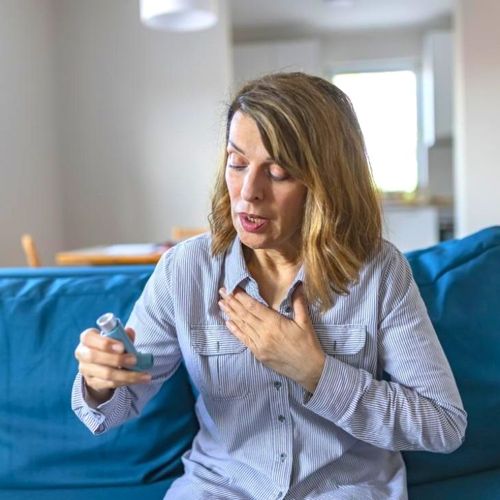Preferred drug lists and preauthorization policies, which are designed to hold down the cost of medical care, may delay-or even prevent-people who have asthma from getting the most effective treatment.
Even more alarming, some drug companies are reimbursing pharmacies or home health care providers for unapproved medications in nebulizer form (a fine spray or vapor) that can actually worsen asthma symptoms.
These findings come from two studies by the Allergy and Asthma Network/Mothers of Asthmatics (AANMA).
The First Study
The first study gathered information from 19 Medicaid patients and 24 health-care providers about the medications they use and prescribe. Nancy Sander, lead author of both studies and president and founder of AANMA, and her colleagues conducted two focus groups-one for patients and one for health-care providers-in Atlanta; Birmingham, Alabama and San Antonio, Texas.
Both patients and providers said that preauthorization policies and preferred drug lists limit their access to effective asthma treatment. These procedures result in "undue suffering, poorly controlled symptoms, missed work and school days, delays in obtaining prescriptions and emergency department visits," both groups said.
Dr. Jennifer Kim, an allergist at Children's Memorial Hospital in Chicago, says that preferred drug lists and preauthorization policies, such as those established by Medicaid, can definitely be a problem. "For a group of people who already have poor access to health care, this only puts up more barriers and more hoops for them to jump through to get the treatment they need," she says.
The medications Kim has the most trouble obtaining for her patients are nonsedating antihistamines and Xolair (omalizumab), an injectable medication that is used to treat severe asthma, she says.
"The problem with preferred drug lists is that it's all about the dollar. It's not a list that's preferred by physicians or by patients" based on what works best, says Sander.
The Second Study
The second-and more alarming-study detailed reports of the improper substitution of nebulizer medications. Sander and her team found that, without the knowledge of the patient or doctor, some nonapproved compounded medications are being used instead of the nebulizer medications approved by the US Food and Drug Administration (FDA). These compounded medications do not offer the same quality control that FDA-approved medications do.
"We don't know the true strength of these medications," says Dr. Michael Blaiss, the immediate past president of the American College of Allergy, Asthma and Immunology. "There can be contaminants, such as fungi or bacteria, in these medications and one can get infections. We're talking about something that children and adults with severe lung problems are inhaling. This can really be a dangerous thing for patients."
Most of these compounded medications are approved in other forms, such as a powder or tablet, according to Blaiss, but not in the nebulized form. "These medications have to be aerosolized at a certain particle size, and if they're not, they won't reach the right portion of the airways to be effective," says Sander.
What Patients Can Do
While the FDA and individual states investigate, there are steps asthmatics can take to protect themselves, Sander says. FDA-approved medications come in plastic vials, on which all the information is embossed. Medications that come with a paper label have probably been compounded, she says. Medications should also arrive in sealed, foil containers with the prescribing information enclosed. Patients who receive medication that is loosely arranged in the box should check with their doctor or AANMA.
If any patients think they may have received improperly compounded medication, they can also call the AANMA at 800-878-4403 of 866- 227-2934.
